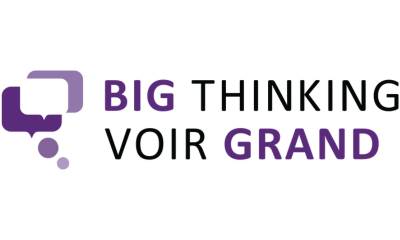REGINA, May 29, 2018 - Researchers are thinking out of the box: questioning assumptions about how we traditionally treat Lyme disease in Canada, and why some people reject fat stigma and are ‘pro fat.’ Others are examining the (in)equity Canadians may face in accessing psychotherapy, based on their income levels. These and many more topics will be presented this week at the Congress of the Humanities and Social Sciences. Canada’s largest academic gathering, Congress brings over 5,000 of the country’s brightest researchers, thinkers, and policy-makers to the University of Regina this week.
Unique to Canada and often called the “Academic Olympics,” Congress is great fodder for journalists looking for fresh research stories in the humanities and social sciences.
All of these researchers are on the University of Regina campus this week. Highlights in research in the fields of healthcare include:
Lyme Disease in Canada: Lyme disease in Canada is on the rise in recent years, yet our means of dealing with this disease have been severely handicapped by narrow‐minded assumptions. This paper argues that these assumptions need to be rejected in order to effectively deal with how this disease is diagnosed, treated, and researched. The unjustified belief that there is a single “scientific” approach unnecessarily limits how Lyme disease has been addressed in Canada.
The Audacity of Being For Fat and Against Health: “Obesity” has been considered an epidemic for several decades now, despite a significant body of research that has established people can be healthy at a wide range of non‐conforming sizes. This research will examine how fat stigma is a pervasive and fundamental cause of the problems that have been commonly associated with body fat. Taking such a position is still seen as radical and irresponsible. This presentation embraces that accusation as a means to complicate health discourses and promote a stand for equity and justice.
What is the Purpose of Dietary Guidance for the Prevention of Chronic Disease? When evidence is gathered to provide guidance about diets meant to prevent chronic disease, the issues of class, race, and gender are either ignored or accepted as a means to an end. This presentation explores how public health nutrition policy is based on white, middle‐class notions of "healthy lifestyle" and how this perspective invalidates other ways of knowing about food and "health" and devalues the lives of those whose bodies or ways of being do not fit with mainstream approaches to food and health.
Income and Equity in Access to Psychotherapy in Canada: While equitable access to mental health services is only one of many critical determinants of mental health, inequitable access is nevertheless an important economic and social justice issue in its own right. Public health insurance in Canada has long privileged hospital and physician services over care provided by social workers, psychologists and occupational therapists. This study takes a closer look at the extent to which how rich or poor you are determines how likely you are to access psychotherapy and other mental health services when you need them. May 30 in Language Institute LI 143 at 11:00 am.
The politics of abortion in Northern Ireland: This research examines the future of the Northern Ireland power-sharing model; the curtailment of feminist activism and persistent division over reproductive rights and access to abortion; the role of external intervention and funding; and struggles over memory and memorialization projects in the post-Agreement period. This panel will contribute to a number of political science subfields such as the comparative politics of institutional design; gender and security in international relations; peace and post-conflict studies; and the growing interdisciplinary field of memory and memorialization. May 31 in Classroom - CL 434 at 3:45 pm.
Congress is an annual gathering of more than 65 scholarly associations, each holding their annual conference under one umbrella. This year’s theme is “Gathering Diversities”, reflecting the history of Regina as a traditional place of gathering and rich buffalo hunting grounds for Plains cultures.
Congress is open to the public. More information about the Federation and Congress 2018 is available online through their website, Twitter and Facebook.
-30-
For interview requests
Federation for the Humanities and Social Sciences
Nicola Katz
Manager of Communications
nkatz@ideas-idees.ca
Cell: 613-282-3489
University of Regina
Dale Johnson
Communications Strategist
dale.johnson@uregina.ca
Cell: 306-531-5995
About the Congress of the Humanities and Social Sciences
Organized by the Federation for the Humanities and Social Sciences, Congress is the largest interdisciplinary conference in Canada, and one of the largest in the world. Now in its 87th year, Congress brings together academic associations that represent a rich spectrum of disciplines in the humanities and social sciences, including literature, history, theatre, film studies, education, music, sociology, geography, social work and many others. Congress 2018 is hosted by the University of Regina. For more information, visit www.congress2018.ca.
About the Federation for the Humanities and Social Sciences
The Federation for the Humanities and Social Sciences promotes research and teaching for the advancement of an inclusive, democratic and prosperous society. With a membership now comprising over 160 universities, colleges and scholarly associations, the Federation represents a diverse community of 91,000 researchers and graduate students across Canada. The Federation organizes Canada’s largest academic gathering, the annual Congress of the Humanities and Social Sciences. For more information about the Federation, visit www.ideas-idees.ca.
About the University of Regina
The University of Regina is constantly pushing the bounds of knowledge and pioneering new ways of thinking about the world. It’s no surprise that the University is ranked in the Top 200 by Times Higher Education in the Best Young Universities category. At the heart of its success is the institution’s commitment to growing diversity. Since 2009, it has increased its international student population by 122 percent and its Indigenous student population by 84 percent. The University of Regina is home to the country’s highest percentage of graduate students from outside Canada, and has received the top ranking in Canada for its number of international research collaborations. For more information about the University of Regina, visit www.uregina.ca.

Vivre-ensemble
Par Prof. Margrit Talpalaru, professeur.e et responsable académique pour le Congrès 2025 au Collège George Brown Le Collège George Brown (CGB) est le premier établissement d'enseignement supérieur à accueillir le Congrès des sciences humaines au...

Le Congrès en Conversation - Partie III avec Aliyah Datoo
← Page d'accueil du balado Voir Grand Introduction | À propos de l'invitée | La recherche d'Aliyah Datoo au Congrès | Transcription | Suivez nous Introduction Bienvenue au Congrès en Conversation, une série spéciale présentée par le balado Voir...

Faire vivre les communautés politiques
Voir Grand au Congrès 2024 Face aux menaces croissantes qui pèsent sur la démocratie, que peut-on faire pour promouvoir une communauté politique durable? Rejoignez-nous pour une discussion stimulante sur la polarisation politique, l'injustice sociale...
